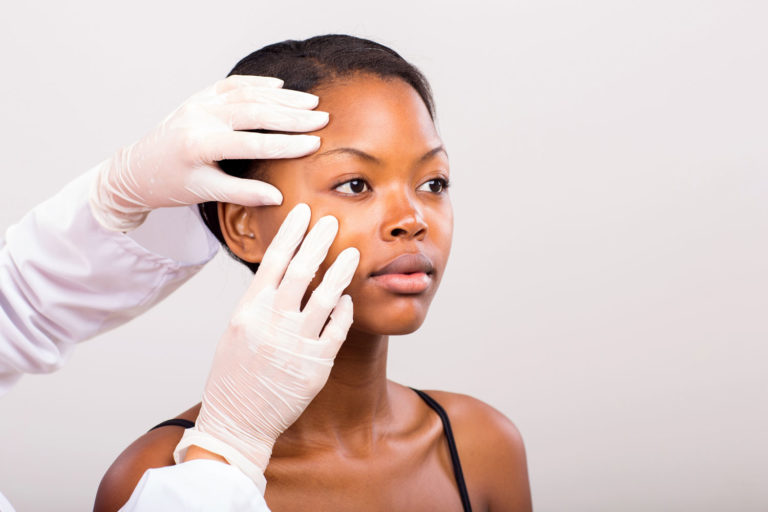What is Psoriasis?
Psoriasis is a chronic autoimmune condition that affects more than 7 million Americans and ranges in severity from mild to extremely severe. It causes cells to build upon the skin’s surface too quickly forming thick, scaly skin patches.
Psoriasis Symptoms
Symptoms typically depend on the type, and severity, which may include:
- Red, raised patches or plaques of skin that can crack or bleed
- Loose, silvery scales
- Burning, itching, or soreness
- Crusted plaques on the scalp
- Nail discoloration, thickening, and pitting
- Swollen and stiff joints
Types of Psoriasis
- PLAQUE: dry, red skin plaques or raised patches with silvery scales
- GUTTATE: commonly triggered by strep throat infection and looks like smaller, tear-drop-shaped scaly spots. Typically occurs in young adults and children.
- INVERSE: less scaling and larger areas of inflamed, dry skin
- PUSTULAR: scaly plaques with sores and may include nail symptoms
- ERYTHRODERMIC: bright red, inflamed rash that burns, itches and affects the majority of the body
- PSORIATIC ARTHRITIS: involves joint stiffness, swelling, and pain
Psoriasis Causes & Triggers
The immune system and genetics play major roles in developing psoriasis but there are usually triggers that initiate flares. The autoimmune process causes the skin cells to shed at an abnormally fast rate, which causes the buildup of thick, red, scaly plaques. Some common triggers of this chronic autoimmune condition flares are illnesses that weaken the immune system like strep infection, stress, and physical trauma.
Psoriasis Treatment
- Topical corticosteroids: creams or ointments to reduce inflammation
- Topical salicylic acid: to remove thick scales
- Vitamin D analogues: complements topical steroid treatments
- Intralesional injections: directly into the areas of psoriasis
- Excimer Laser
For more information about Psoriasis, view some of our articles.

